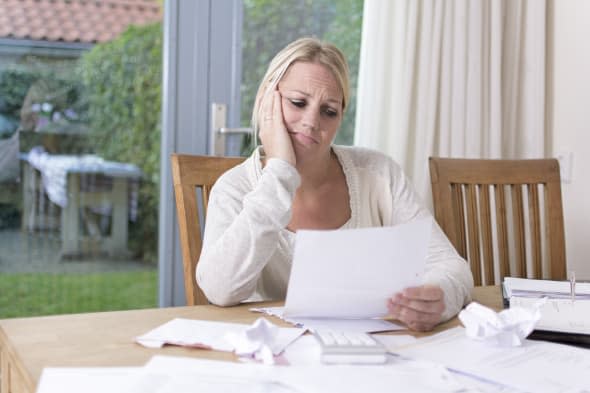Can your bank help if you're struggling?

If you find yourself short of cash, it's easy to see your bank as the bad guy. After-all it's the bank that asks you to make a payment on your credit card, or refuses to let a direct debit go out if you don't have enough money. More to the point, it's the bank you will have to pay interest to if you go overdrawn. However, the bank doesn't have to be the villain of the piece, because if you're struggling, they may actually be able to help.
Cynics will be quick to dismiss the idea of the bank riding to the rescue when you're struggling to make ends meet. They'll point out that when you go overdrawn or cannot afford to repay money on your credit card, you have to pay interest to the bank, which boosts their profits.
However, there's another side to this: the bank has absolutely nothing to gain from you getting into financial difficulty. If you fail to make credit card repayments, default on your loan, or miss the mortgage, it gives them a headache. In the worst-case scenario you could end up never paying this cash back, so it's in their best interests to help you at the outset if you are struggling.
It means that if you start to worry about making ends meet, your bank may offer a number of ways to help you get back on track.
Stop the pressure
For many people when they run into trouble, they assume that they need to hide from their bank, because otherwise they will be put under impossible pressure to pay up, but if you actually approach your bank and ask for help, they may be able to help take some of the pressure off.
It means they aren't operating in the dark - where they assume you are being irresponsible and they gradually escalate the consequences for missing payments. Instead they understand you are having problems and are trying to deal with them, which often slows down the process of escalation, or stops it entirely if you can show you are committed to repayments.
Guidance
There are plenty of resources to help you plan your finances better. Most of the banks will have guidance online. This may include a list of questions to ask yourself to see if you should be worried about your financial situation - such as whether you are struggling to pay bills, whether you have maxed out several of your cards and whether you need your credit card for day-to-day spending.
If this reinforces your concerns, and you need help with budgeting, the banks offer helplines which aim to talk customers through the basics of budgeting, and will be able to answer your questions.
If your problem is more complicated, or you would prefer to speak to someone completely independent, their website will have links to independent debt charities, such as Citizens Advice and Step Change, who will be able to get a real understanding of your situation and the financial pressures you are facing - then explain all of the options that are open to you.
Beyond budgeting, these charities can put together a debt management plan, to freeze the interest on your debts, on the understanding that you will stick to a rigorous repayment schedule. If your problems are more serious than that, they can look at more far-reaching steps like an IVA or bankruptcy.
Practical help
Aside from this guidance, your bank is likely to offer a range of practical options too. If you are struggling to repay your credit card, they are committed to giving you a reasonable time to pay. If you talk to them, they may be able to change the way you make your payments, or the date you make them on. In some instances they can also completely review your payment plan.
If it's your mortgage that you're struggling to pay, then you need to get in touch with your lender before you miss any payments. If you talk it through with them, they may be able to arrange a payment holiday, or reduce your payments for a short period of time.
It's important to be aware that this won't be a freebie: the extra months will be added onto the end of your mortgage period, and will eventually have to be paid. It also means you'll rack up more interest over the years. However, if you really need the breathing space as a one-off, it may be worth the longer-term costs.
If your overdraft is becoming a long-term fixture, you can also talk to your bank about consolidating your debt and getting a loan on a lower rate. This comes with a huge caveat. Debt consolidation is only half of the solution: it needs to come alongside drawing up a strict budget, to enable you to live within your means, so you don't end up with an even bigger problem further down the line.

Managing your money on AOL Money
Learn the financial habits of successful people
Ten steps to tackle your debts in January
Financial resolutions you must make (and keep)



